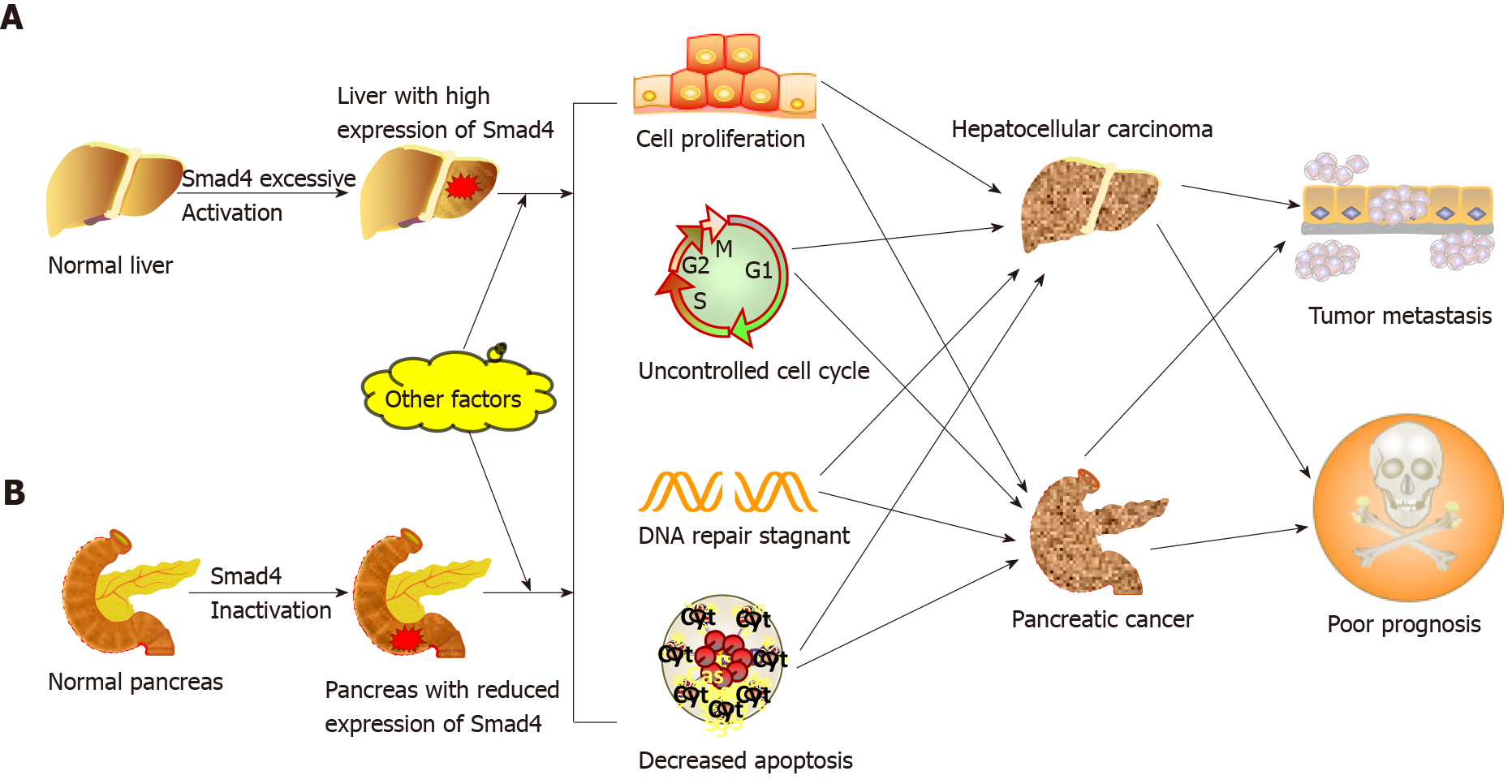Copyright
©©The Author(s) 2022.
World J Stem Cells. Jan 26, 2022; 14(1): 41-53
Published online Jan 26, 2022. doi: 10.4252/wjsc.v14.i1.41
Published online Jan 26, 2022. doi: 10.4252/wjsc.v14.i1.41
Figure 3 Different roles of mothers against decapentaplegic homolog 4 in the development of hepatocellular carcinoma and pancreatic cancer.
A: The role of Smad4 in liver carcinogenesis. During the development of hepatocellular carcinoma, the transcriptional activity of mothers against decapentaplegic homolog 4 (Smad4) is abnormally increased, and in combination with gene mutations, alcohol, pathogen infection, as well as other carcinogenic factors, contributes to the loss of cell cycle control, suppression of DNA damage repair, increased proliferation, and decreased apoptosis. These factors result in a higher metastatic ability of cancer cells and poor patient prognosis; B: The role of Smad4 in pancreatic carcinogenesis. During pancreatic cancer progression, the deletion or mutation of Smad4 leads to loss of Smad4 activity. The absence of Smad4 function, together with other carcinogenic factors such as gene mutations and pancreatic tissue injury, results in the loss of cell cycle control, suppression of DNA damage repair, increased proliferation, and decreased apoptosis. These factors result in a higher metastatic ability of cancer cells and poor patient prognosis. Smad4: Mothers against decapentaplegic homolog 4.
- Citation: Dai CJ, Cao YT, Huang F, Wang YG. Multiple roles of mothers against decapentaplegic homolog 4 in tumorigenesis, stem cells, drug resistance, and cancer therapy. World J Stem Cells 2022; 14(1): 41-53
- URL: https://www.wjgnet.com/1948-0210/full/v14/i1/41.htm
- DOI: https://dx.doi.org/10.4252/wjsc.v14.i1.41









